
Over 20 crore workers, employees and rural labourers joined the two-day all-India General Strike on March 28, 2022 announced by the Joint Platform of ten Central Trade Unions (CTUs) and independent sectoral federations to decry “anti-worker” laws in India.
CTUs except the Bharatiya Mazdoor Sangh (BMS) – the RSS-affiliated labour union – called for protests against the four Labour Codes, privatisation of all PSUs, and the declared policy of monetising all public sector land. Workers joined marches, rallies, gate picketings and roadblocks in support of the strike.
By afternoon, the All India Trade Union Congress (AITUC) received information that workers and employees in banks, insurance companies did not enter their work places anywhere in the country. The coal, steel, post, oil, copper, telecom sector workers began agitations from Monday morning. Similarly, electricity workers went on strike in all states, including Maharashtra where the government has invoked the Essential Services Maintenance Act (ESMA).
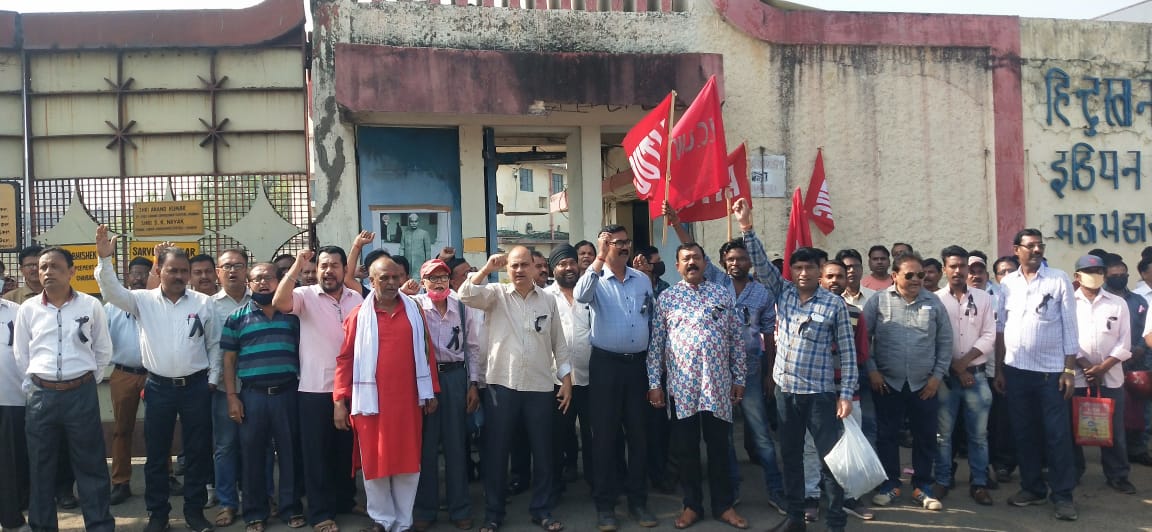
In Kerala, unions began strike action from the intervening night between March 27 and March 28. However, by Monday afternoon, the Kerala High Court banned government employees’ participation in the nationwide strike dubbing the move “illegal”. According to LiveLaw, a Division Bench led by Chief Justice S. Manikumar and Justice Shaji P Chaly said the employees’ participation violates Rules 86 of the State Government Servants’ Conduct Rules, 1960. However, protests were still observed in the state.
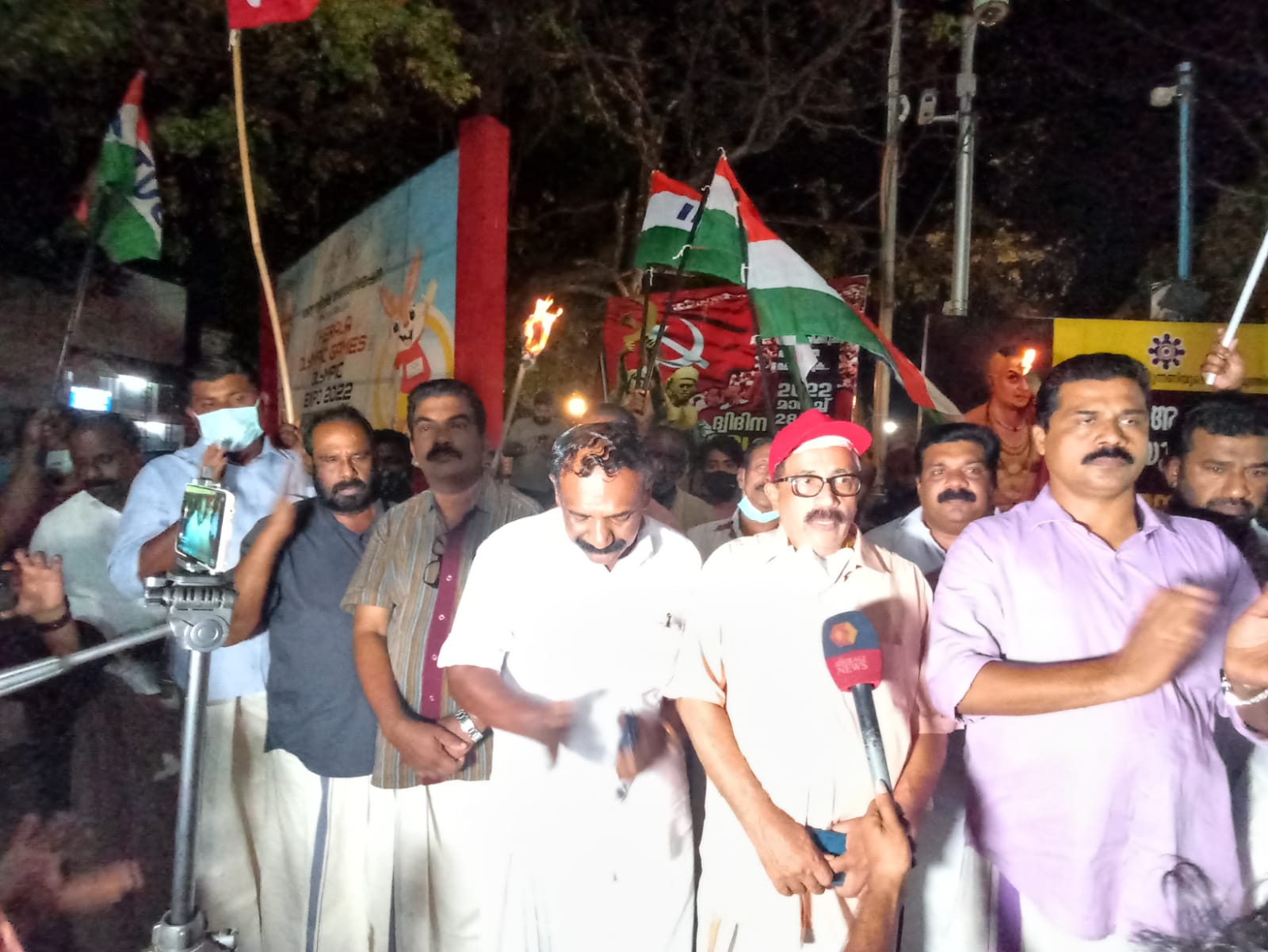
In other areas, Railways and Defence sector employees organised militant demonstrations at more than one thousand places. Adding their voices to the strike, anganwadi workers, ASHAs, mid-day meal and domestic workers, construction workers, beedi and agricultural workers, hawkers participated in chakka jams, roadblocks and rail roko programmes as well. Haryana Road Transport workers picketed depot areas from early morning also in defiance of the ESMA enacted in the state.
In Delhi, the International Federation of Trade Unions (IFTU) and other trade unions led marches in the Okhla Industrial Area and in Mayapuri Industrial Area to implement strikes. In Mayapuri, even the owners shut down 80 percent of the industries. Similarly, industrial areas in Mangolpuri reported how IFTU along with Progressive Democratic Students Union (PDSU) activists and Pragatisheel Mahila Sangathan (PMS) members attended the joint rally that marched through the area. Rallies and marches were also held in several parts of the city, including Jhilmil industrial area. Industrial areas in Himachal Pradesh, Gujarat and Jammu and Kashmir also participated in the strike.
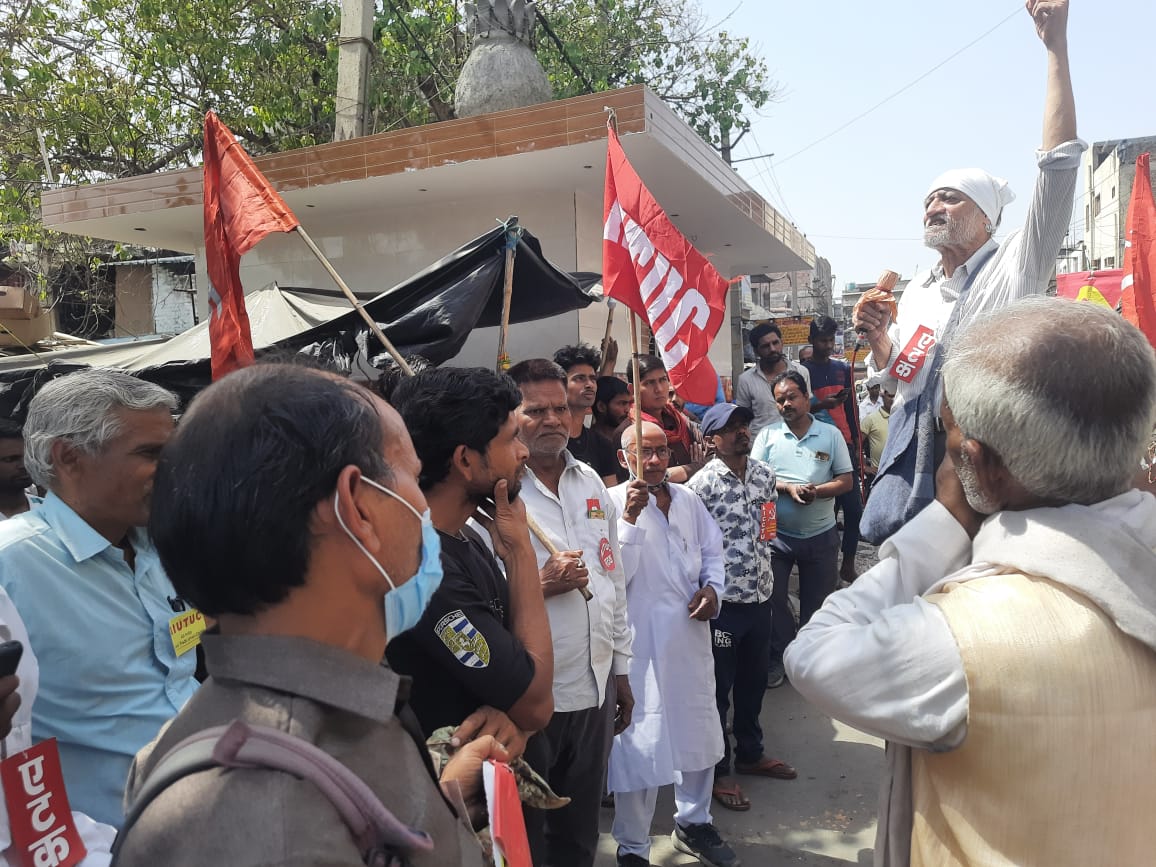
Meanwhile, there was a bandh-like situation in Tamil Nadu, Kerala, Puducherry, Andhra Pradesh, Telangana, Odisha, Assam, Haryana, Jharkhand. As many as 50,000 government employees picketed central government offices in 300 places of Tamil Nadu.
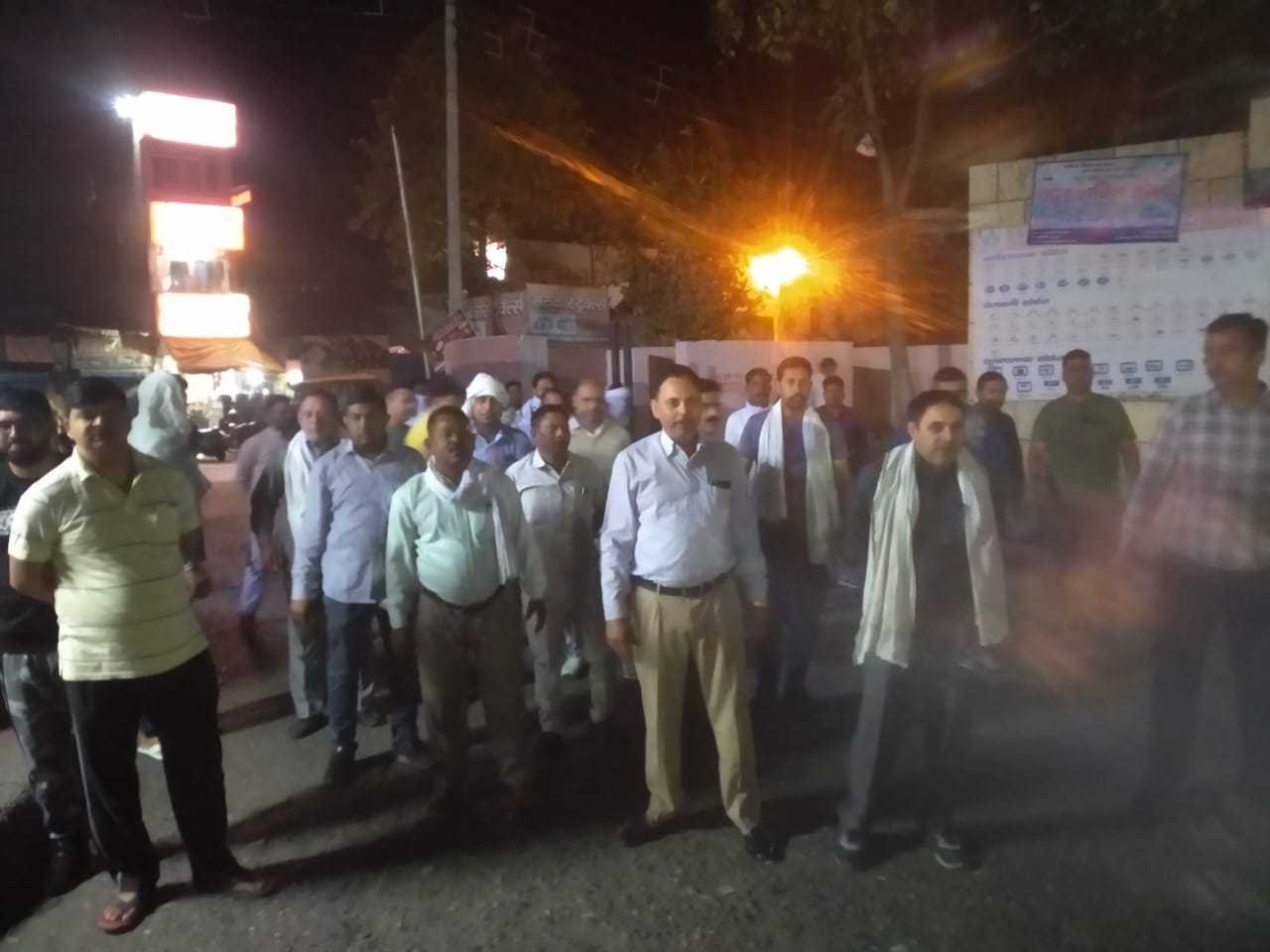
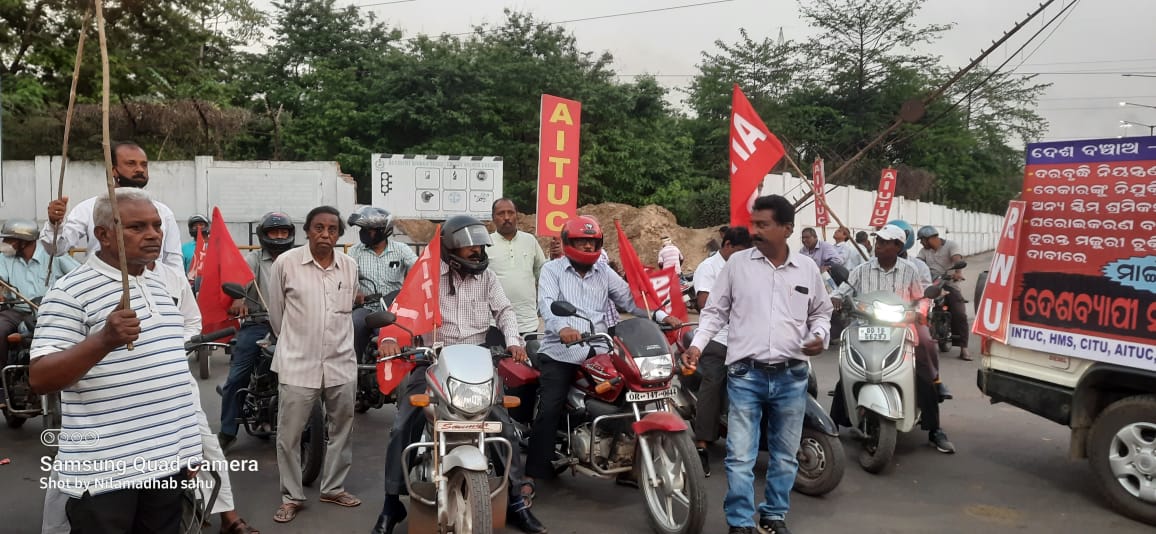
Workers in Hyderabad under various unions took out a joint rally of over 500 workers and held a demonstration at the Labour Dept’s RLC office. Whereas, the Andhra Pradesh IFTU held a dharna and rally in Vijayawada where State Presidents P. Prasad and K. Polari participated. The Vizag steel plant workers also demonstrated against the Centre’s plan to privatise the plant. Protesters observed a bandh in Vizag.
Transport was severely disturbed in Gajuwaka region of Visakhapatnam as well where shop owners closed business. Some jute mills in the area were also closed. In Telangana, the NTPC Ramagundam contract workers went on strike and held a huge gathering at the gate in response to the strike call by the Joint Action Committee.
Protests against the “anti-people” laws continued in Kehelgaon NTPC in Bihar where 90 percent of contract workers (4,500 workers in all) and a good number of the total of 450 permanent workers joined the strike. Similarly, the IFTU auto workers union in Sasaram and Dehri-on-Sone held a rally after a complete auto strike. In Muzaffarpur too motor workers rallied under the IFTU banner.
West Bengal workers blocked rails and roads across the state. Although several jute mills here are closed due to government policies, places like the Dalhousie jute mill, the Angus jute mill and others also witnessed protests. The Siliguri market was almost entirely closed.
The IFTU union in Uranium Corporation of India LTD, Jharkhand organised a black badge day for all workers. Singareni Collieries Ltd coal workers observed a strike on the call of the JAC of trade unions especially against the commercialisation of 4 coal blocks. In Punjab, unions held a huge demonstration in Nawashahr while road transport workers observed full strike. In many places construction workers held protests.
According to unions, the strike was impressive in other states like Goa, Karnataka, Maharashtra, Chhattisgarh, Rajasthan, Meghalaya and Arunachal Pradesh. Security Workers in Sikkim went on strike as well. Moreover, income tax department employees too have joined the strike, said CTUs.
“Even fishermen did not venture into the sea in the morning. The farmers have mobilised in rural areas as per the decision of the Sanyukta Kisan Morcha, in favour of the strike action, pressing for their six demands, along with the support to workers demands,” said the AITUC Secretariat in a statement.
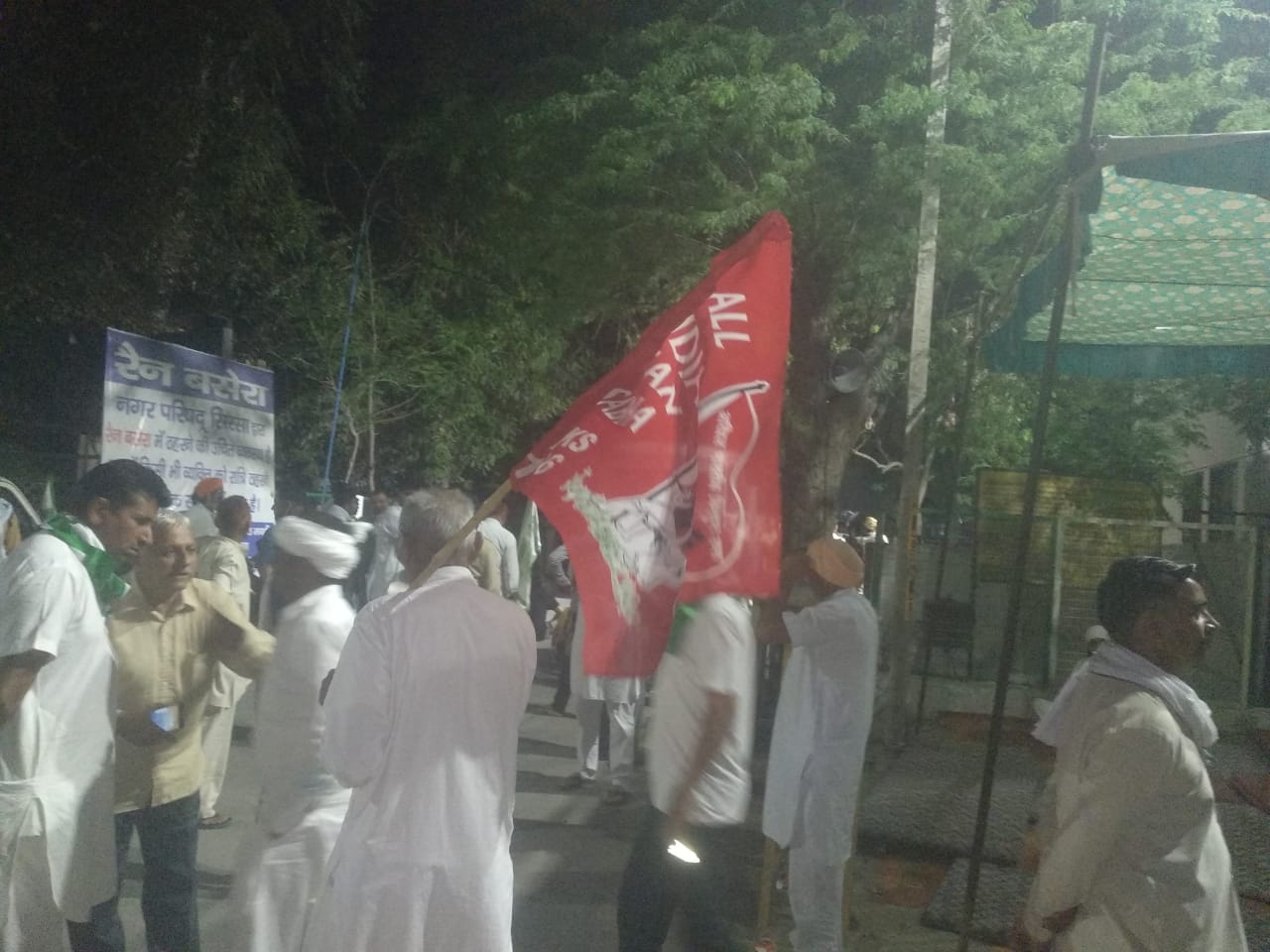
Related:
AIPF-R to join workers General strike!
CTUs to hold regular virtual conferences for General Strike
How Silicosis is killing Indian workers
Trade unions condemn move to reduce EPF interest rate to 8.1 percent